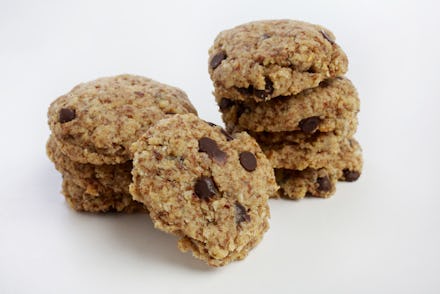There's No Such Thing as "Comfort Food," Say Scientists Here To Ruin Our Day

The news: Everyone has their version of comfort food, whether it be a tub of ice cream, a mug of hot chocolate or a whole box of pizza. In times of stress, illness or exhaustion, comfort food can serve as an emotional crutch to get you out of your funk.
But according to a new University of Minnesota study, published in the journal Health Psychology, comfort food may be nothing more than a placebo — and unnecessary calories.
"Negative moods naturally dissipate over time," the researchers wrote. "Individuals may be giving comfort food 'credit' for mood effects that would have occurred even in the absence of the comfort food."
The study: In order to determine the emotional impact of comfort food, the researchers asked a group of 100 students what foods they ate when they were in a bad mood.
Then during two different sessions, the students viewed an 18-minute video montage designed to elicit "feelings of anger, fear, anxiety, and/or sadness" and filled out a mood questionnaire. After one session, the students were given their choice comfort food; after the other, they were given non-comfort foods they liked, such as a plain granola bar or nothing at all. At the conclusion of each session, students filled out a questionnaire again.
What the researchers found was that in every permutation of the study, "participants' moods improved over time" and "this happened to the same extent regardless of which type of food they ate, or whether they at any food at all."
What does this mean? Despite 81% of study participants saying they were confident that "eating this food would make me feel better," it turned out that all they needed was time, not comfort food.
And while comfort foods might seem like harmless placebos, the researchers warned against unhealthy emotional eating — especially since the participants' most common comfort food was chocolate, followed by ice cream and cookies.
"We found no justification for people to choose comfort foods when they are distressed," the researchers concluded. "Removing an excuse for eating a high-calorie or high-fat food may help people develop and maintain healthier eating habits, and may lead them to focus on other, food-free methods of improving their mood."
So the next time you reach for your spoon in times of stress, maybe taking a deep breath or a nap is the way to go.